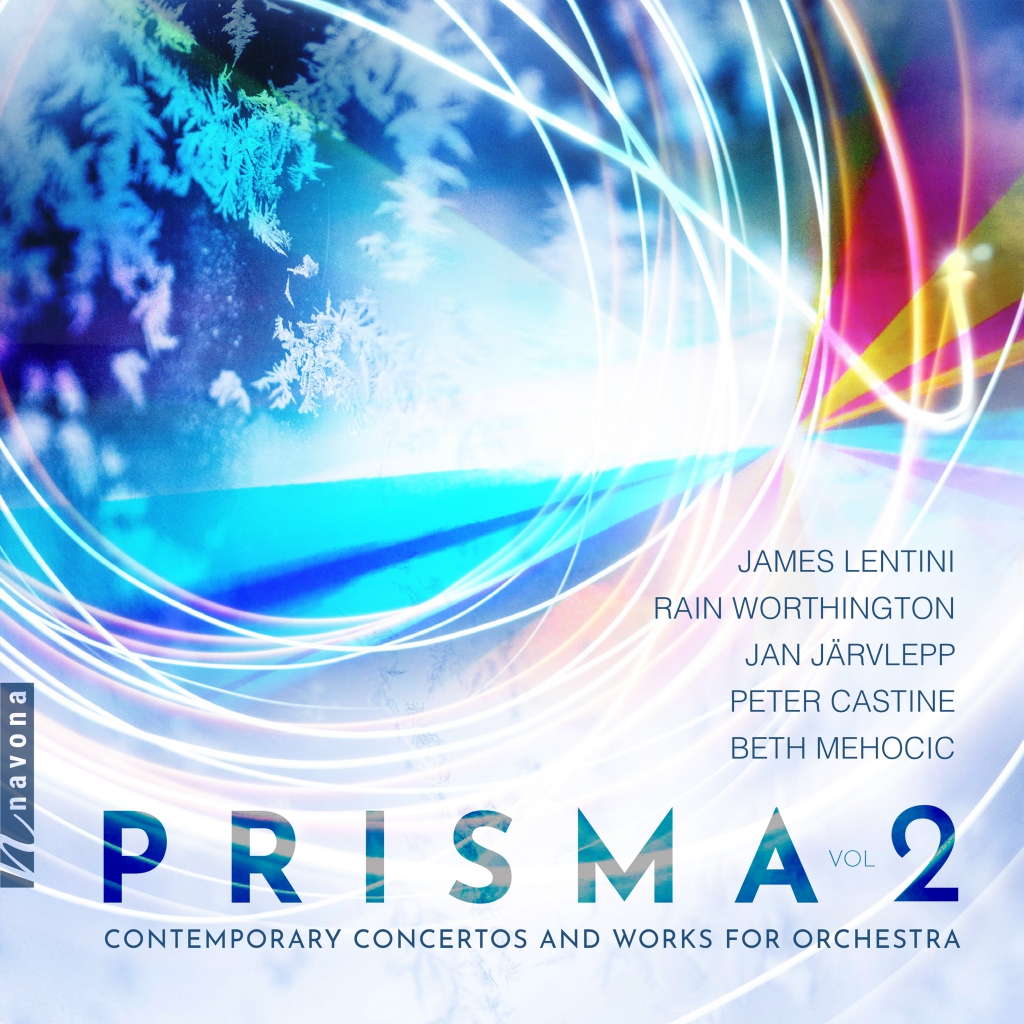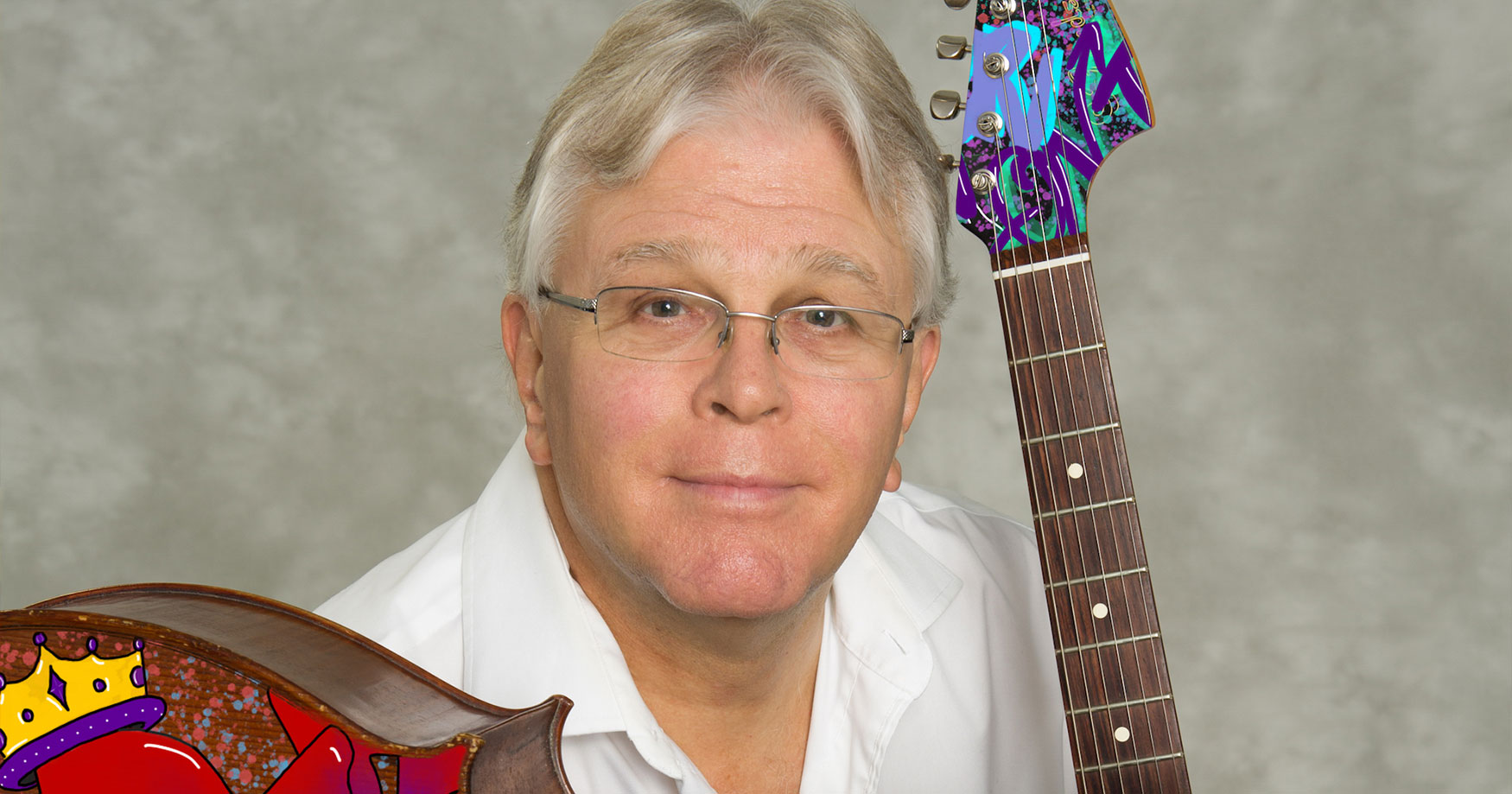Jan Järvlepp was born in Ottawa Canada of Estonian and Finnish parents in 1953. He began playing pop guitar at the age of 12 and took up cello in high school at the age of 14. He also learned to play bass guitar and harmonica. At the University of Ottawa, McGill University, and the University of California, San Diego he majored in composition while developing his cello playing skills.
As his studies progressed, he realized that he was not on the same wavelength as his Modernist composition teachers. Once outside of the university environment, he began composing in a newer style of neo-tonal music that would not be acceptable among the academics. The result has been a series of refreshing and accessible pieces of music that appeal to a surprisingly wide cross-section of the public.
In 1993, the OSO under David Currie performed his Camerata Music to a very receptive audience and in 1996 premiered his percussion concerto, the Garbage Concerto, to a wildly appreciative audience. It has now been performed and broadcast around the world.
Today, Jan is our featured artist in “The Inside Story,” a blog series exploring the inner workings and personalities of our artists. Read on to learn about Jan’s surprising successful first performance…
Tell us about your first performance.
I’ll tell you about my first performance as a composer, since that is most relevant to this album. My first “classical” piece to be performed was an orchestral piece named Ice played by the University of Ottawa Orchestra, directed by Françoys Bernier, in February 1976 on campus. It was an atonal, avant garde, 15-minute piece featuring shimmering clusters of string sound that would slide up and down in a precisely measured manner. The orchestra was divided into many parts, à la Xenakis or Penderecki. There was a lot of metal percussion such as bowed vibraphone, tubular bells, flexatone, cymbals, and Fender electric piano. Rehearsals had gone badly and the piece actually fell apart during the dress rehearsal. I think that some players were not taking the piece very seriously since it was only by a student. I was a member of the cello section so I was witnessing all of this. However, when the concert happened, everybody pulled themselves together and followed the conductor. The result was stunning! It became an unexpected hit with the audience and received enthusiastic applause. My composition professor, the other faculty members, my family, the orchestra, my friends, and fellow students were all surprised at this sudden success. But nobody was more surprised than me. I didn’t know that my piece sounded this good. I was prepared to be embarrassed by my piece falling apart during the concert, as it did in the rehearsal. So, all of a sudden, I had made my debut as a composer.
Unfortunately, a really bad recording was made of the concert by a U. of O. technician using poor microphones and a tape recorder that was so hissy that you can’t even tell when the piece starts. This makes it hard to demonstrate it to future performers. My hand-copied score was also a bit of a mess, although that was not rare back then. I passed a copy of the score and tape to local conductor Mario Bernardi and never heard back from him. I also gave it to Brian Law of the Ottawa Symphony Orchestra with similar results. I persisted by trying to gave it to the conductor of the 1976 National Youth Orchestra, of which I was a member. I knocked on his door and said “I’ve written this piece for orchestra.” He literally slammed the door in my face saying “nice handwriting.” I continued at McGill U. where I gave it to Uri Mayer, conductor of the McGill Symphony, and in California I gave it to Thomas Nee, conductor of the La Jolla Symphony, always with the same result. Back in Ottawa after my formal education, I gave it to James Wegg, conductor of the Nepean Symphony Orchestra, with no success. Finally, I was psychologically tired of this and the message that I didn’t want to hear was getting through to me. So I stopped promoting the piece and it never did receive a second performance. To add injury to insult, the U. of O. librarian threw the orchestral parts into the garbage.
What inspires you to write?
I don’t have any choice. When I get really busy with rehearsals, concerts, gigs, and teaching, steam starts to build up inside of me and I get very frustrated. The only relief from this pressure is to get back to composition. It seems that I was born to do this activity and that it is natural and necessary for me. This why I compose. It gives me satisfaction.
But what actually inspires us composers artistically may or may not be conscious to us. Naturally, the world around us influences us, as well as social interactions and artistic developments in our own discipline and in the other art forms. The economy and political situation will help determine how carefree or anxious we are. If you don’t believe me, just compare the first movement of Shostakovich’s 8th Symphony to Gershwin’s An American in Paris. A stock market crash or the onset of war will influence the art, perhaps in ways that the artist is not aware of.
When I was younger I found it exciting and inspiring to go out and play in front of a couple thousand people who appreciated the performance. But now I perceive that designing the listening experience as a composer is really where it is at. Performing music is more physical, while composing is more intellectual, involving little movement. So, playing an instrument is like being a hockey player while composing is like being an architect. The architect’s design occupies space while the composer’s design unfolds over a period of time. But they both require that intellectual overview of the totality and how the constituent parts fit in to it. As I see old orchestral players retire and gradually their musical contributions become forgotten, I realize that the biggest and most lasting contributions are those that will live on. Of course, creating music that will live on is more easily said than done.
How have your influences changed as you grow as a musician?
That has changed a lot since my youth. I was mesmerized by pop music as a teenager and went to see live performances by Jimi Hendrix, Cream, the Who, Santana, the Mahavishnu Orchestra, Led Zeppelin, the Beach Boys, Wilson Picket, James Brown, Muddy Waters, Bob Dylan, and many others. I even saw one of the first psychedelic bands early on and noticed their extended improvisations instead of the usual 3-minute radio songs. I played rock music from the end of elementary school through high school and at the beginning of my university studies. But in university I gradually stopped playing guitar and bass guitar and concentrated on cello and the classical composition of scores. I learned new concepts of musical theory, analysis, and harmony, and started to be influenced by the great classical composers—not so much stylistically but in their concepts of form. So I transformed from a guy with an electric guitar plugged into a loud amplifier to guy sitting at a desk with a pencil, eraser, and manuscript paper. The main activity went from the fingers into the brain. I still like to study scores by great artists such as Sibelius and Mahler in an effort to unlock their secrets. But they don’t yield such information very willingly.
I was “scarred for life” by my youthful pop music experiences. The bluesy minor thirds, the flat sevenths, the parallel barre chord progressions, the empty fifth power chords, funky syncopations, and certain pop music attitudes towards melody, harmony, and rhythm are alive and well in my music today. I think that Europeans find my music to sound quite American and sometimes underplay funky offbeats and punchy accents.

Camerata Music on PRISMA VOL 2 is now available for streaming or purchase through Navona Records. Click here to explore this new album.



